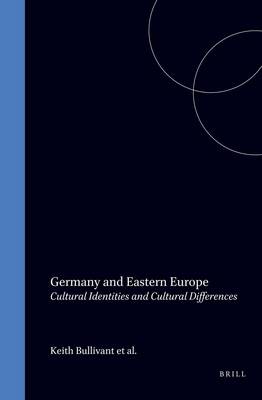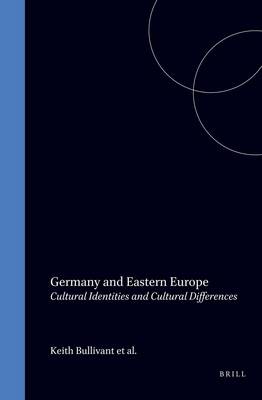
- Retrait gratuit dans votre magasin Club
- 7.000.000 titres dans notre catalogue
- Payer en toute sécurité
- Toujours un magasin près de chez vous
- Retrait gratuit dans votre magasin Club
- 7.000.0000 titres dans notre catalogue
- Payer en toute sécurité
- Toujours un magasin près de chez vous
Germany and Eastern Europe
Cultural Identities and Cultural Differences
273,45 €
+ 546 points
Description
The opening up, and subsequent tearing down, of the Berlin Wall in 1989 effectively ended a historically unique period for Europe that had drastically changed its face over a period of fifty years and redefined, in all sorts of ways, what was meant by East and West. For Germany in particular this radical change meant much more than unification of the divided country, although initially this process seemed to consume all of the country's energies and emotions. While the period of the Cold War saw the emergence of a Federal Republic distinctly Western in orientation, the coming down of the Iron Curtain meant that Germany's relationship with its traditional neighbours to the East and the South-East, which had been essentially frozen or redefined in different ways for the two German states by the Cold War, had to be rediscovered. This volume, which brings together scholars in German Studies from the United States, Germany and other European countries, examines the history of the relationship between Germany and Eastern Europe and the opportunities presented by the changes of the 1990's, drawing particular attention to the interaction between the willingness of German and its Eastern neighbours to work for political and economic inte-gration, on the one hand, and the cultural and social problems that stem from old prejudices and unresolved disputes left over from the Second World War, on the other.
Spécifications
Parties prenantes
- Editeur:
Contenu
- Nombre de pages :
- 372
- Langue:
- Anglais
- Collection :
- Tome:
- n° 13
Caractéristiques
- EAN:
- 9789042006881
- Date de parution :
- 01-01-99
- Format:
- Livre relié
- Format numérique:
- Genaaid
- Dimensions :
- 155 mm x 230 mm
- Poids :
- 793 g

Les avis
Nous publions uniquement les avis qui respectent les conditions requises. Consultez nos conditions pour les avis.





